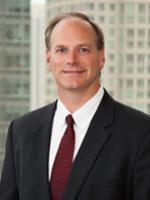In a 7-2 decision, the Supreme Court held that not all determinations made during the process of claim construction are reviewed de novo upon appeal to the Federal Circuit. The decision is a result of a dispute between drug manufacturers over the definiteness of a claim term. The Supreme Court granted certiorari in March of 2014 in Teva Pharmaceuticals USA, Inc., v. Sandoz, Inc.[i] in order to consider the following question:
Whether a district court’s factual finding in support of its construction of a patent claim term may be reviewed de novo, as the Federal Circuit requires (as the panel explicitly did in this case), or only for clear error, as Rule 52(a) requires.
The Court left the holding of Markman[ii] unchanged and held that while the overall determination of a patent claim’s scope (i.e., claim construction) is a matter of law that is reviewed de novo (without deference) on appeal, the process of determining a claim’s construction may include the need to resolve subsidiary facts that are in dispute between the parties. The resolutions made by a district court with regard to these extrinsic subsidiary facts in dispute are factual findings, held by the Court, and are reviewed for clear error on appeal. Intrinsic evidence, such as the prosecution history of the patent, on the other hand, are legal determinations that will be reviewed de novo on appeal.
In this case, the respective experts of Teva and Sandoz disagreed as to the meaning of the term “molecular weight” in the patent at issue. The Supreme Court held that a district court’s resolution of a dispute between experts is a factual determination that is better resolved by a district court and should not be newly reviewed unless it is determined to be clearly erroneous on appeal. These determinations made at the district court level will become more difficult to reverse on appeal as a result.
The claim construction hearing (or Markman Hearing) is a critical stage in any patent litigation. Given the deference to be paid to the determinations of a district court under the Supreme Court’s decision, the presentation of experts or other extrinsic subsidiary evidence becomes more critical at the district court level. This places more emphasis on being able to persuade a district judge, often without technical training or patent experience, of your view of the evidence.
[i] Teva Pharmaceuticals USA, Inc. v. Sandoz, Inc., No. 13-854, U.S. Supreme Court decided Jan. 20, 2015, available at: http://www.supremecourt.gov/opinions/14pdf/13-854_o7jp.pdf.
[ii] Markman v. Westview Instruments, Inc., 517 U.S. 370 (1996).


 />i
/>i
